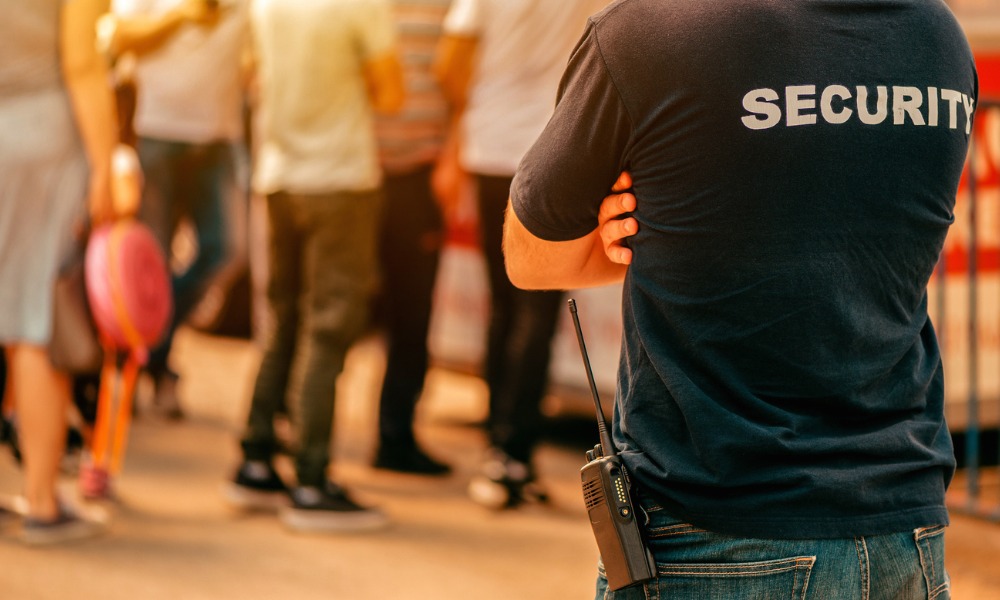
Authority says no real threats to safety arise from wearing an ID in readily available position

Security personnel in Auckland have been prohibited from taping over the certificate numbers on their IDs after the Private Security Personnel Licensing Authority ruled that doing so won't reduce threats to their safety.
Crowd controllers of a security firm in Auckland, identified only as "A Security," have been taping over their certificate numbers in an attempt to hide them from patrons.
The practice stems from numerous threats received by staff of A Security, the owner told the authority.
"The owner of A Security says over the past year threats to his staff has reached the point where they hold a genuine fear for their safety," the authority was told.
Workplace safety at risk?
The owner said someone previously threatened to shoot a security guard for refusing access to a bar, while some gang members also threatened a security personnel after being asked to relocate within a venue.
In one instance, a staff was also "seriously injured while working in security."
According to the owner, his employees are concerned that if people could read their certificate numbers, they could be identified using the security register and be easily located as well as their families.
The police have questioned the practice of blanking out the certificate numbers after discovering them in a security compliance check. They accused A Security of being non-compliant to the Private Security Personnel and Private Investigators Act and asked the authority to provide clarity on the matter.
‘No significant threat’ to safety
In the decision, authority head Trish McConnell ruled against taping over or obscuring the certificate number for security personnel, citing A Security owner's inability to defend how doing so could reduce threats to safety.
The owner was also unable to cite a situation where a patron used a guard's certificate number to find them on the register. The police were also unable to mention such cases.
McConnell recognised that security guards at some pubs and clubs feel vulnerable at work, but she emphasised that wearing an ID with a certificate number does not contribute to the threats they get.
"There is no real or significant threat that arises from wearing an ID in a readily available position even if it displays the guard's certificate number," McConnell said. "Therefore, a belief by a security guard... that wearing their ID would be a threat to their safety is not a reasonable belief."
Protecting vulnerable workers
In New Zealand, various groups have been calling on the government to do more to protect employees from getting harmed while at work.
The New Zealand Council of Trade Unions (NZCTU) recently asked the government to follow South Australia and make industrial manslaughter a criminal offence.
Citing the International Labour Organisation, the NZCTU said there are 2.3 occupational fatalities in New Zealand per 100,000 workers. There are also 1,200 non-fatal occupational injuries per 100,000 employees.
"Our workers deserve better. Together, we are calling for Not One More – corporate manslaughter legislation to prevent any more unnecessary and preventable workplace deaths," the NZCTU said in a media release.
"Every person who works in New Zealand deserves to have their health and safety prioritised. And every company that breaches these rights must be held accountable."